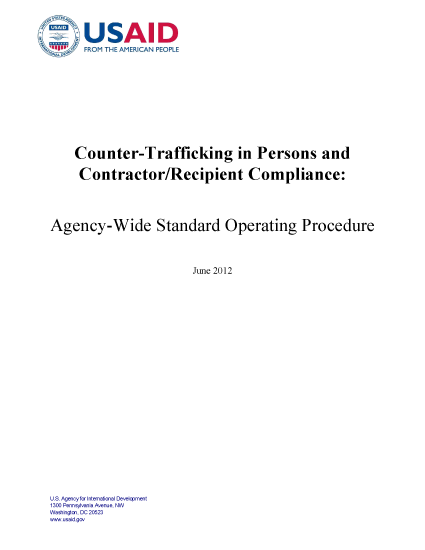- What We Do
- Agriculture and Food Security
- Democracy, Human Rights and Governance
- Democracy, Human Rights and Governance Strategy
- Supporting Free and Fair Elections
- Supporting Vibrant Civil Society & Independent Media
- Protecting Human Rights
- Promoting Accountability & Transparency
- Importance of Democracy, Human Rights, & Governance to Development
- COVID-19: Issues and Potential USAID Responses
- Countering Trafficking in Persons
- Global Labor Program
- Religious Freedom
- Youth Impact
- Economic Growth and Trade
- Education
- Environment and Global Climate Change
- Gender Equality and Women's Empowerment
- Global Health
- Humanitarian Assistance
- Transformation at USAID
- Water and Sanitation
- Working in Crises and Conflict
- U.S. Global Development Lab
Speeches Shim
Trafficking in Persons
Trafficking in Persons (TIP) is an international crime involving the acquisition of a human being through the use of force, fraud, or coercion for the purpose of exploiting the individual for profit through forced labor or prostitution.
Thriving in the shadows of poverty and conflict, TIP victimizes millions of people worldwide. Although precise numbers are unknown, the scale of human trafficking is vast, affecting men, women and children in every country in the world. The root causes of TIP are linked to development challenges that USAID addresses every day, including limited education and employment opportunities, weak social safety nets, a tenuous rule of law, and ethnic and gender discrimination.
USAID is among the largest donors engaged in counter-trafficking in persons (C-TIP). USAID programmed $163.3 million in C-TIP activities in 68 countries and Regional Missions between FY 2001 and FY 2010. During this time period, USAID provided 22% of all USG C-TIP international programming with the remainder provided by the State Department and Department of Labor.
USAID’s Counter-Trafficking in Persons Policy and Code of Conduct
In an effort to reinvigorate USAID’s C-TIP investments and demonstrate a renewed commitment to being a leader in C-TIP, the Agency launched the 2012 Counter-Trafficking in Persons Policy (See Tab 2). In the policy, USAID highlights the five primary agency objectives relating to TIP, one of which is enhanced institutional accountability to combat TIP as a result of training and coordination.
Complicity by the international community in human trafficking, whether by host governments, international organizations, donors, NGOs, contractors or assistance recipients—especially in conflict and disaster regions—has been well documented. In February 2011, USAID adopted a C-TIP Code of Conduct (See Tab 3) that advances the highest ethical standards for all USAID personnel, as well as contractors, sub-contractors, recipients and sub-recipients. The code seeks to deter all activities that would facilitate or support TIP in any form. In furtherance of this effort, USAID’s Bureau of Democracy, Conflict and Humanitarian Assistance (DCHA) formed an intra-agency working group to specifically combat contractor and recipient TIP abuses. The working group consists of DCHA, the Office of the Inspector General (OIG), the Office of General Counsel (GC), the Management Bureau’s Office of Acquisitions and Assistance (OAA) and TIP advisors from regional and pillar bureaus.
Counter-Trafficking in Persons Standard Operating Procedure
USAID takes the issue of human trafficking in government contracts and assistance awards (grants and cooperative agreements) very seriously. This document demonstrates the current comprehensive standard operating procedure (SOP) of the agency with regards to potential TIP abuses by contractors, sub-contractors, assistance recipients and sub-recipients. While this SOP is in full effect at this time, USAID is aware that this issue has been, and continues to be, evolving over time. Therefore, the SOP will be amended to reflect any necessary changes. The Agency is working directly with the White House and other federal agencies to ensure that not only USAID, but the entire USG, is sharing best practices and developing standards that will be used throughout the federal government to guarantee that TIP abuses in government contracts and assistance awards is no longer an issue.


Comment
Make a general inquiry or suggest an improvement.